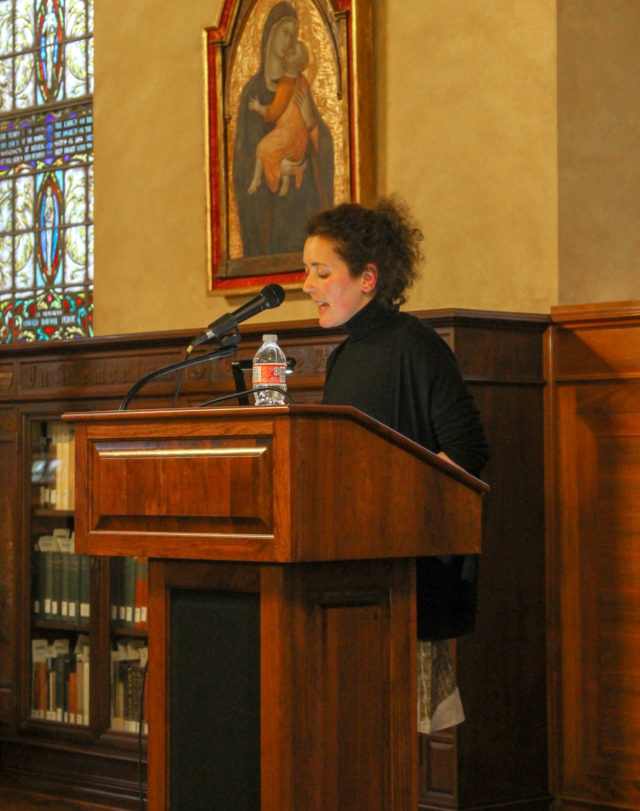By Emma Whitaker | Reporter
The Honors College encouraged textual knowledge of literature’s classics on Friday, Feb. 8, in Armstrong Browning Library with the event titled — Ovid, Rhetoric and Freedom of Speech in the Late Augustan Age: A Symposium on the Poet Ovid and his Milieu.
Scholars and students alike listened to speakers, who included Carole Newlands, professor of distinction at University of Colorado, Eleonora Tola, from the University of Buenos Aires, Alden Smith, professor of classics at Baylor, Laurent Pernot, of the Institute of France.
Lovers of the classics listened to disabilities, ambiguities and possibilities within the text of Ovid and more. In front of the grandiose stained glass, speakers discussed all many topics ranging from Seneca’s ironic writings to Agamemnon’s misogynist speech within the Iliad. Professors questioned the speakers, applauding their ideas and provoked further discussion of concepts and discoveries.
Junior Pranay Lalloobhai, a Latin student said, “I think Latin teaches you a lot about history, which helps you make decisions in the now. I think this kind of experience gives us a way to understand how people were thinking in this time period.”
Julia D. Hejduk, a speaker of the event, an Ovid fan and writer of book The Offense of Love, elaborated on how she discovered a writer was misusing her text in an improper context.
Her talk discussed feminism, toxic masculinity and, ultimately, textual abuse. She had the crowd in laughter at points with her critique of Agamemnon’s improper and sexist behavior. Ultimately, she challenged students to identify false teachers and foolish leaders.
In a instant information generation, she encourages student to be objective in deciphering truth from falsity.
“It is important,” Hejduk says, “to recognize irony in a text. Irony means that you mean the opposite of what you are saying.”
Hejduk encourages critical thinking when reading, and to not mistake reality for irony; dig into the text to decipher what an author means.
“You have to think intuitively and say, ‘Is this a reliable source? Are they making a credible argument that is based in fact?’ If they’re not, investigate it,” Hejduk said. “One of the problems with our Twitter-based society is that there’s no chance to truly experience the development of an argument. It’s just one sound bite, there’s no chance to develop a persona. The art of reading is being lost in this culture.”



